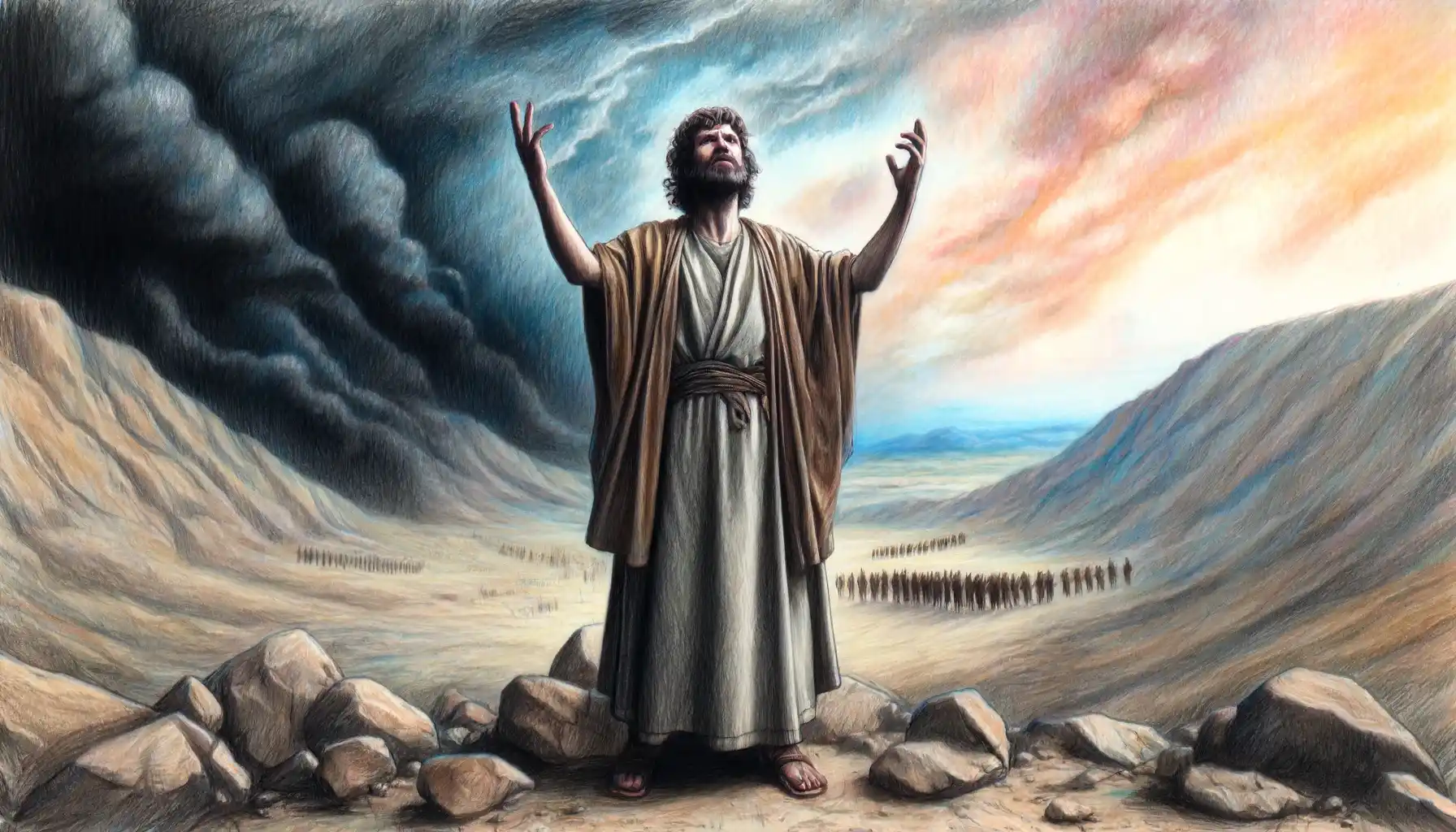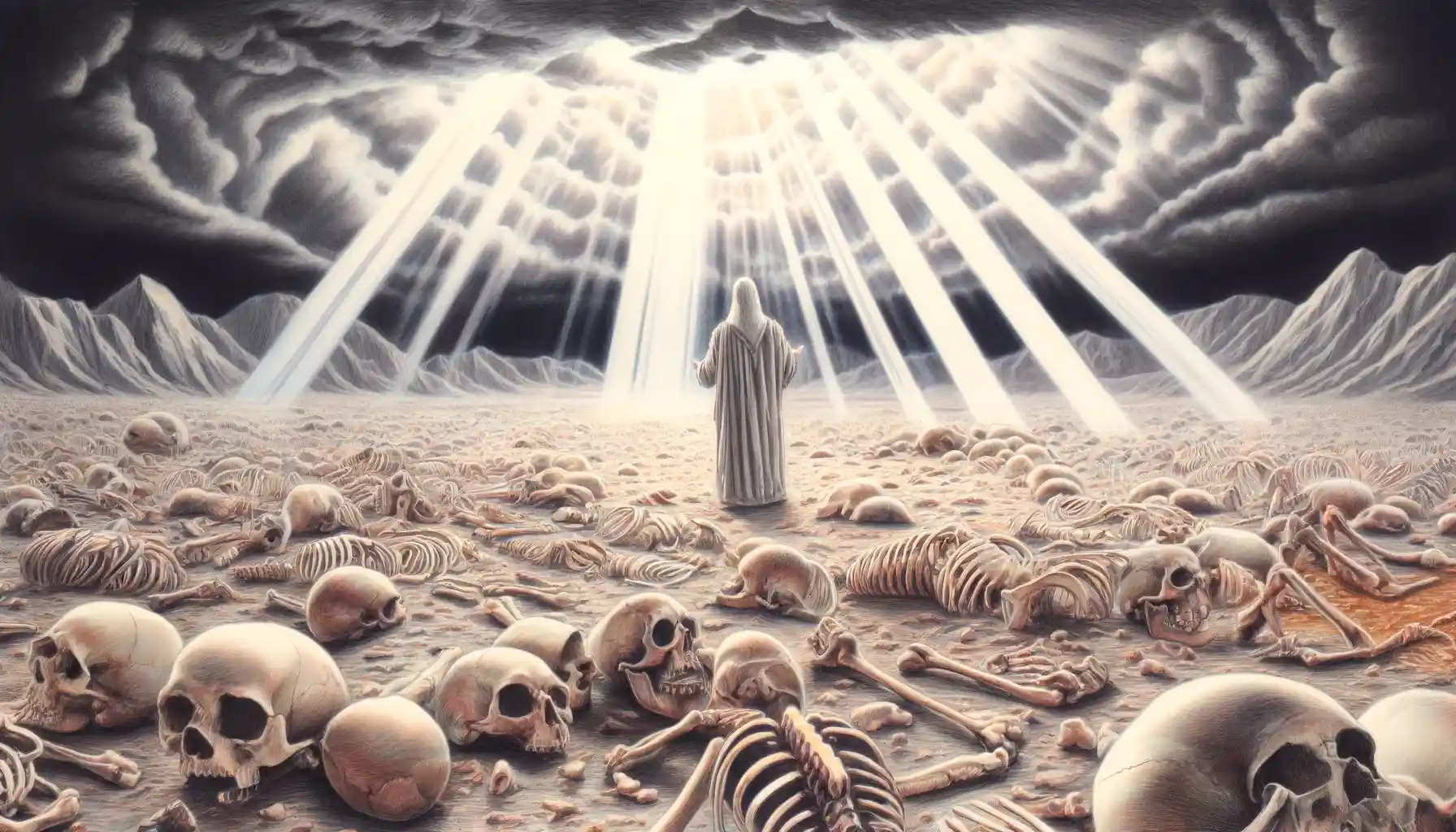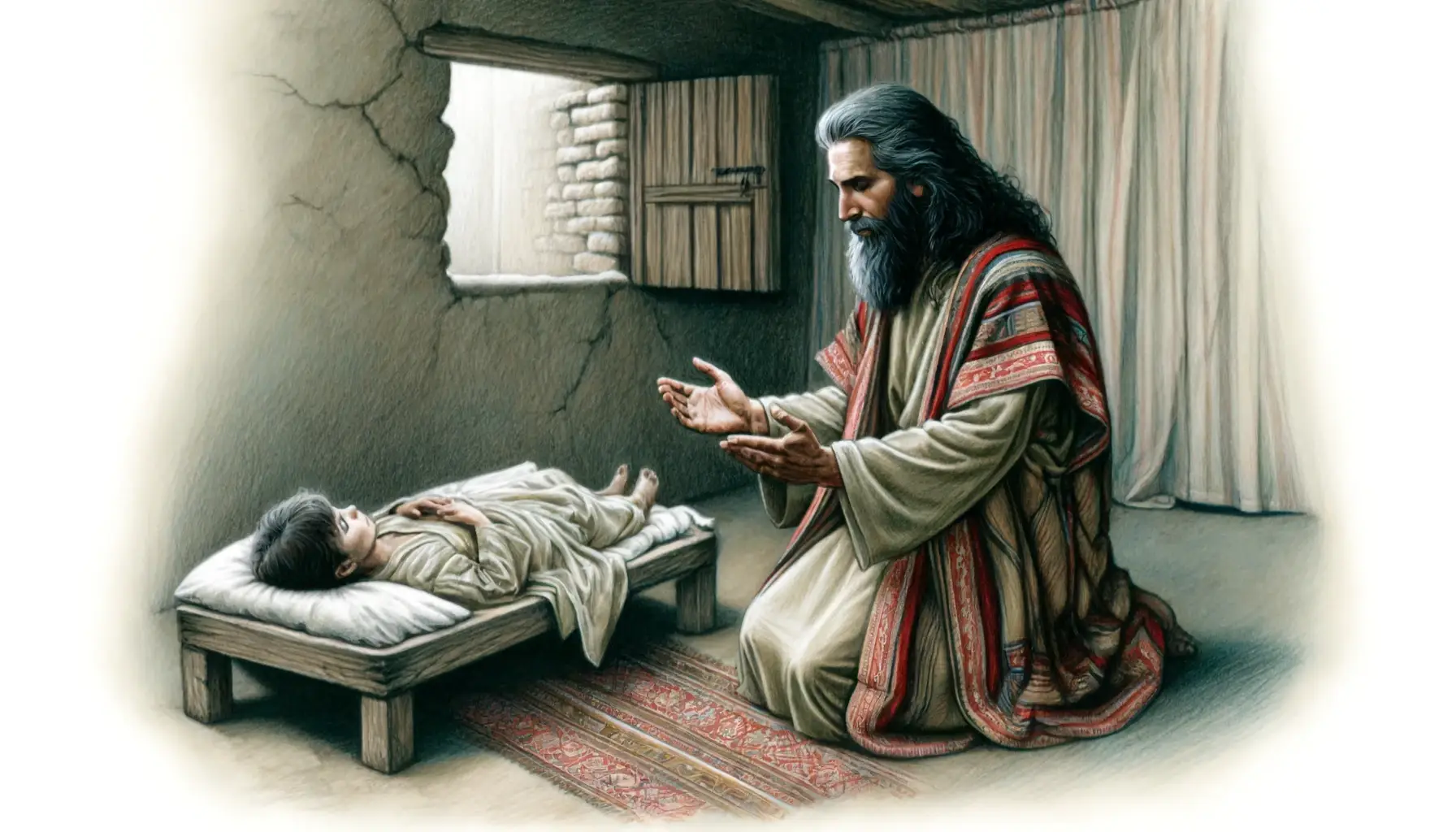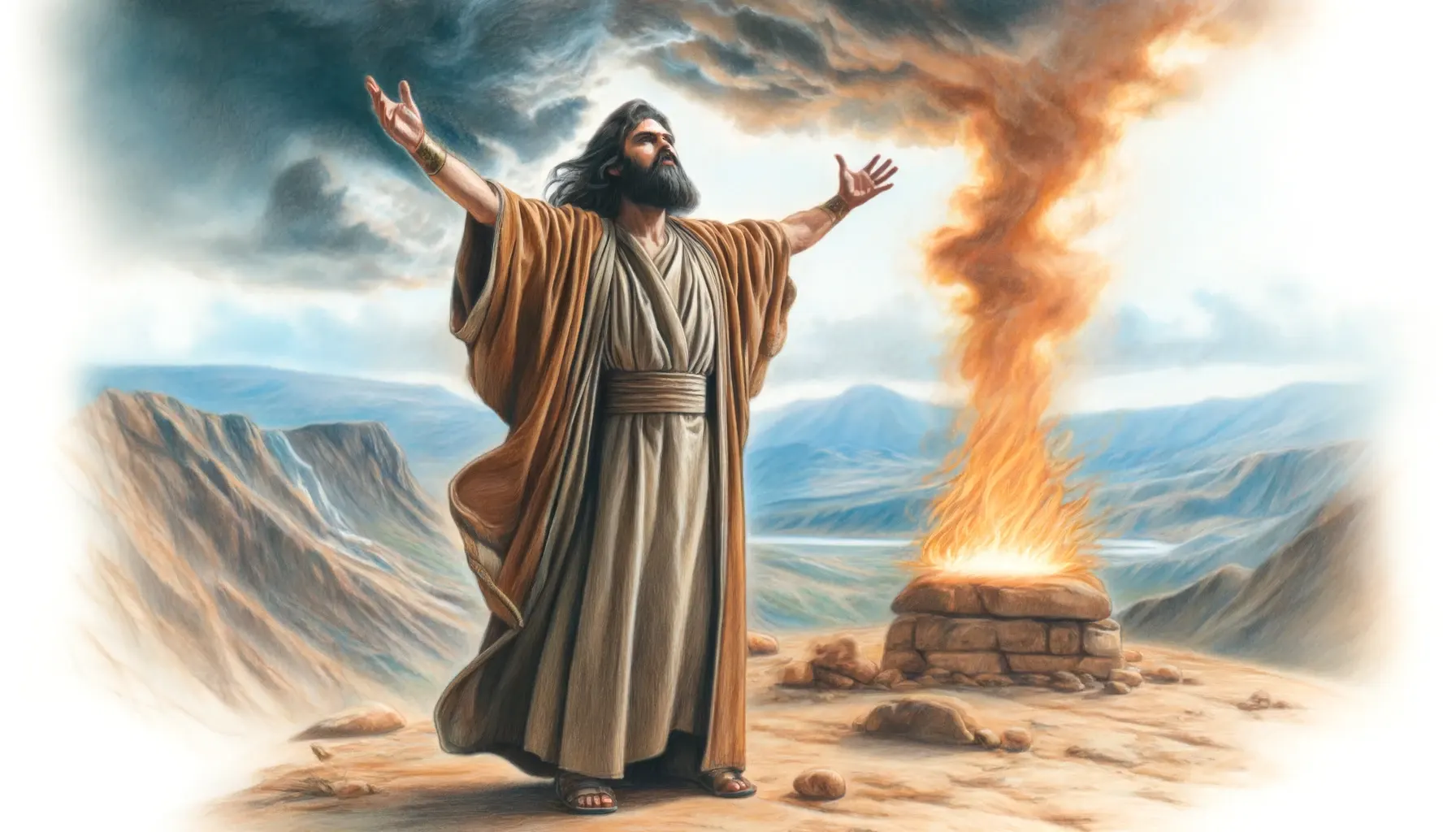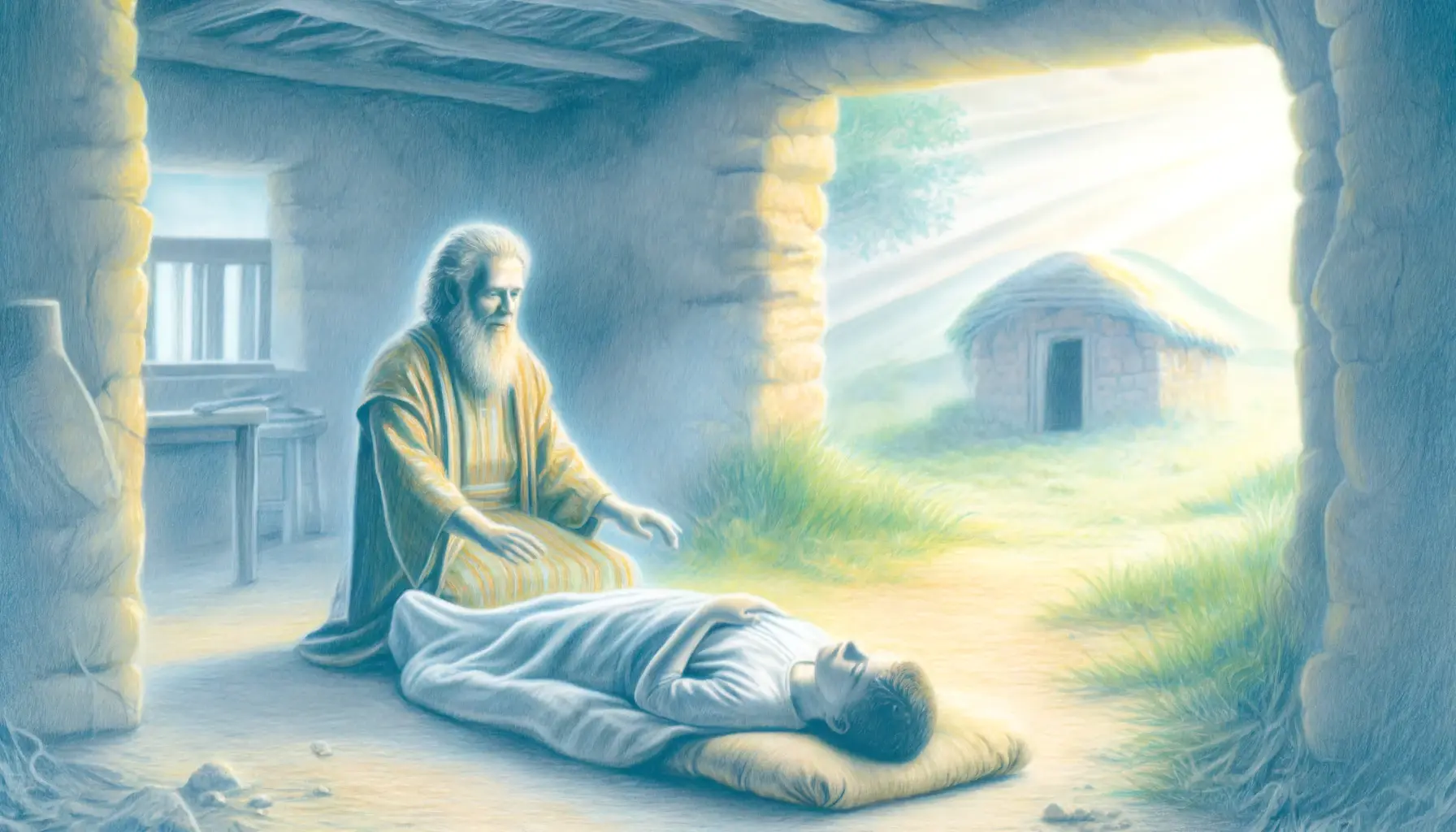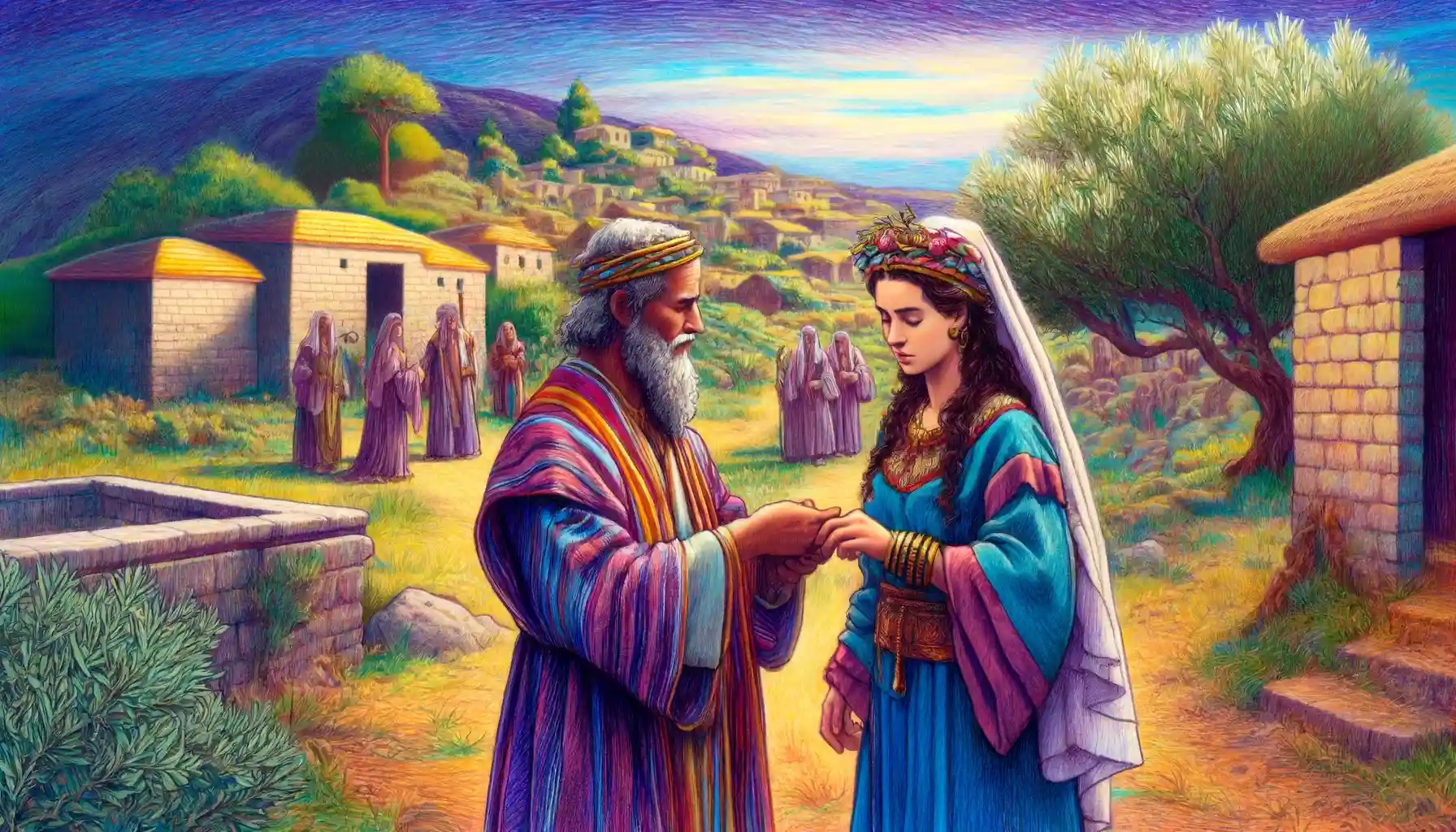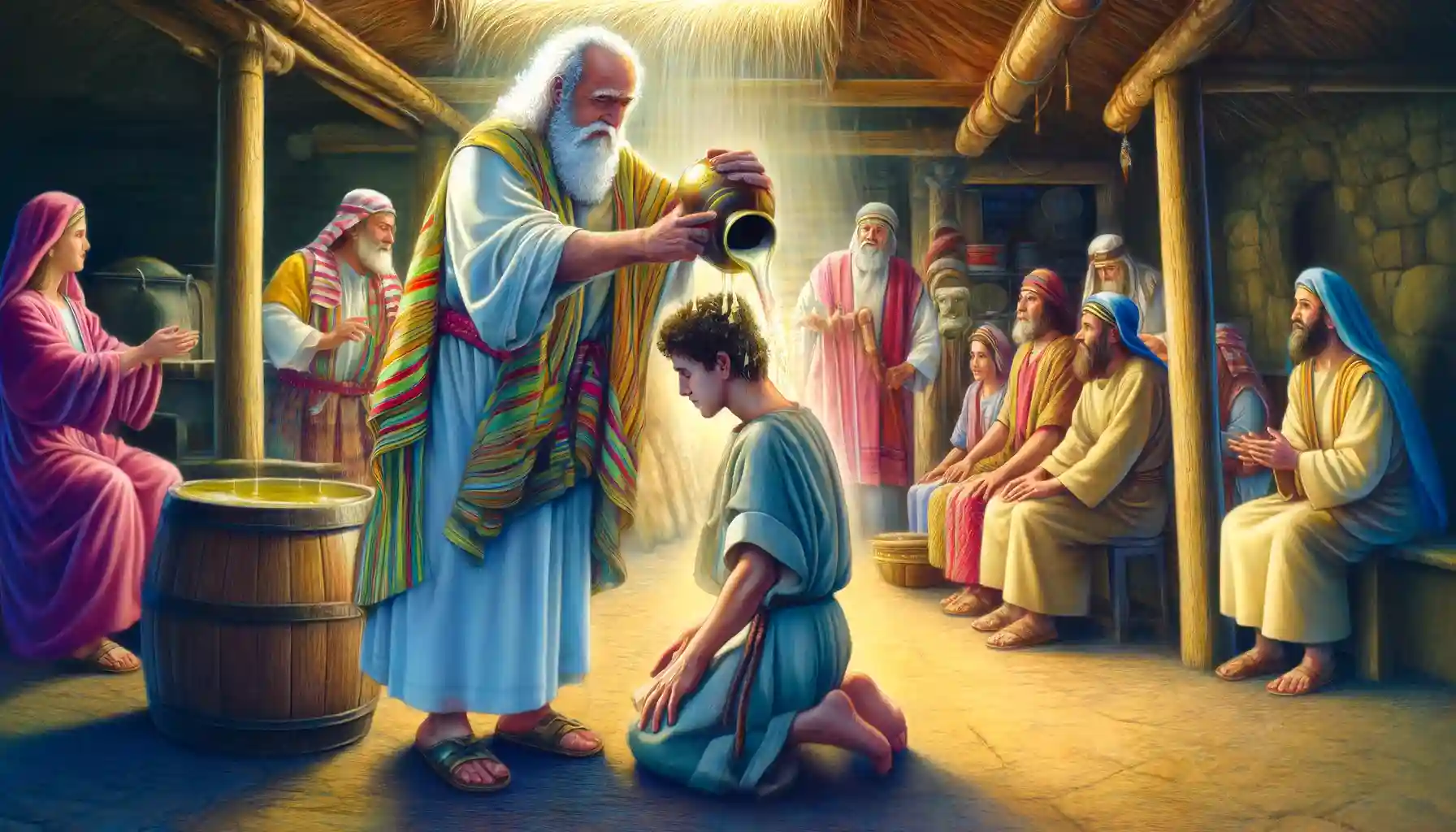Habakkuk, a prophet during a time of turmoil in Judah, questioned God about the problem of evil and received answers that highlighted God’s sovereign plan, leading him to a deeper faith and trust in divine justice.
Ezekiel, a prophet and priest during the Babylonian exile, is best known for his symbolic visions, including the vision of the valley of dry bones, which conveyed messages of hope, restoration, and divine presence to the exiled Israelites.
In the narrative of 1 Kings 17:17-24, Elijah raises the widow’s son from the dead in Zarephath, showcasing God’s supreme power over life and death, and reinforcing the prophet’s authority as a true messenger of Yahweh, thereby deepening the widow’s faith and illustrating the reach of God’s miraculous intervention beyond Israel.
Elijah, a defining prophet in the Hebrew Bible, is celebrated for his unwavering dedication to God, most notably demonstrated through his dramatic confrontation with the prophets of Baal on Mount Carmel, where he proved God’s supreme power by calling down fire from heaven.
In 2 Kings 4:32-37, the resurrection of the Shunammite’s son by Elisha, through an intimate and miraculous act of physical contact, highlights the divine power over life and death and underscores the profound faith of the mother, illustrating the close, reciprocal relationship between God’s prophets and those they serve.
The Book of Hosea offers profound insights into the complexities of God’s character and His expectations for a faithful, loving relationship with His people, making it a critical text for understanding biblical prophecy and theology.
1 Samuel provides a rich narrative that not only recounts historical events but also offers profound lessons on leadership, obedience, and the complex interactions between divine providence and human agency.

